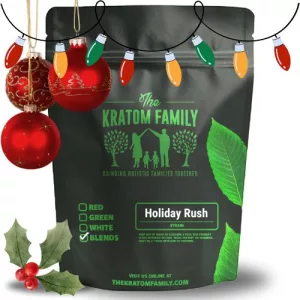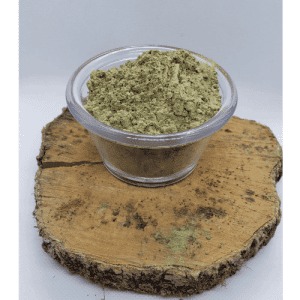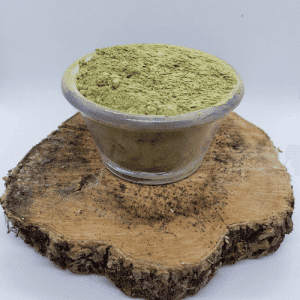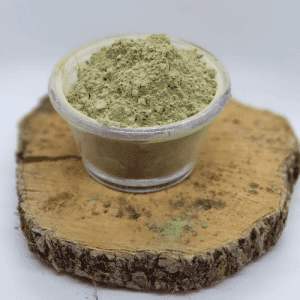When you buy just about anything, or at least most things, chances are those products were put through some type of quality assurance process. The same applies to kratom products and even though kratom derives from a tree, making it natural, it still requires proper testing to ensure its safety for human consumption. What’s best to know is that kratom lab testing isn’t a way to put a distributor visually ahead of other suppliers.
It’s an essential part of the manufacturing process that shouldn’t be overlooked, and it’s a red flag if a kratom supplier does not disclose their “lab testing status”. Lab testing doesn’t just assure you of quality, it’s a form of safety for kratom lovers and also shows the competence and priorities of a supplier. While we know safety and quality are two big things that lab testing offers, what does lab testing actually entail and how can you tell if kratom products were tested?
Keep reading as we break down the ins and outs of the testing process, uncover its true importance, and let you in on the telltale signs of both tested and untested products so that you can tell the difference.
What Is Kratom Testing and What Does It Involve?
Kratom products have become a staple solution for different kratom users because they can help users to achieve different types of relief and cater to a variety of complaints. For example, white vein kratom is known for being one of the most potent types of kratom and it’s become a go-to option for those people who need an unusual experience with kratom tea.
For those that need something more mild, kratom green strains have become a happy medium for many kratom enthusiasts that need a middle of the road encounter with kratom tea. While more people are using kratom products for a variety of reasons, trusted kratom suppliers are putting their products through third-party testing. Lab testing of kratom will cover a wide range of things but they will often fall within specific categories. These categories will usually consist of:
- Pathogens
- Potency
- Metals
- Indicator Organisms
Not every category will be tested in the same way as there are different testing methods for each. For example, a facility will often use ICP/MS or inductively-coupled plasma and mass spectrometry testing to test for metals while the PCR or polymerase chain reaction method will be used for pathogen testing.
The Goal of Lab Testing
The main goal of third-party labs when testing kratom is to ensure that the quality meets the standard of the supplier and to ensure that it doesn’t contain anything harmful to kratom consumers. This will usually mean that labs are trying to detect any sign of things like;
- Mercury
- Mold
- Coliforms
- Nickel
Kratom should never contain high volumes of metals or any type of microorganisms like yeast or salmonella. There also shouldn’t be any high amounts of alkaloids as this is an indicator of adulteration of the product and what this means is that the kratom could have essentially been laced with something that wasn’t naturally sourced as part of the kratom plant.
The process may vary slightly based on the facility but generally speaking, a third-party lab will take their samples and use a range of different methods. A few of the most common methods that labs use for testing are:
- Gas chromatography-mass spectrometry (GCMS)
- High-performance Liquid Chromatography (HPLC)
- Inductively Coupled Plasma (ICP)
- Polymerase Chain Reaction or DNA Sequencing (PCR)
Professional testing facilities know how to use these methods to maintain the shelf life of kratom and without altering the natural makeup of the product as well.
Read: 10 Principles To Buying Kratom Online
What Lab Testing Covers
When you buy kratom online, you should pay attention to what the products were tested for. There are a variety of substances that when taken at high concentrations, could pose a health safety threat to consumers and lab testing conducts a panel to review anything that could contribute to that threat.
This will usually consist of an entire microbiological analysis that will help to eliminate the concern of any harmful contaminants being present in the product. Testing will also evaluate a few other specific factors.
Ensuring That There Are No Contaminants Present in the Product
There could be heavy metals or dangerous pathogens present in kratom and oftentimes, these things come from the soil that it was grown in. Every single plant species is actually threatened by just about 100 different pathogens, and kratom does come from a plant which forms its inclusion of potential pathogen attacks. Whether testing for mold or different coliforms, lab testing is essential to prove that there are no traces of these contaminants. Consumption of any of them could cause sickness in humans and this will affect your kratom experience.
Determining Potency
The overall quality and purity of the product isn’t the only thing on the radar for kratom suppliers. Determining potency is also vital so that kratom consumers are giving themselves the most effective and customized doses for the needs they have. Potency also helps suppliers to determine the most appropriate pricing ranges for the product.
The harvest of the kratom plant will affect the number of alkaloids within the product and the rest of the processing workflow will also influence the potency which causes the need to have it tested before being packaged and sold to consumers. The main thing is being able to give consumers a better understanding of the potential effects of their kratom products without being misleading about potency which will affect how the product is actually used.
Evaluating the Consistency
By consistency, we mean that you should be comparing your kratom products and if you only have one batch, look for the things that would make your kratom appear to be safe. This will include assessing the packing of the actual product and the storage that it comes in for any damage and looking over the product for anything that seems out of the ordinary.
Use your sense of sight and smell to observe whether there is any type of molding odor and whether your kratom powder is fine in appearance and texture and remains that way. Also, if you have multiple batches and different products, make sure that they present the same way and that the characteristics of the products aren’t too far apart.
Why Is Lab Testing Important for Kratom Products?
There is an art in testing kratom products. Testing facilities or original sourcing facilities need to be able to kill bacteria without sacrificing the effectiveness of the alkaloids found in kratom. While there can be the risk of offsetting the preservation of kratom alkaloids, experienced facilities will be able to hold a balance that won’t negatively alter the product, and overall, testing is important for the success of the supplier and the experience of the kratom user.
Testing allows suppliers to determine the authenticity of the products. It’s also meant to determine the content of both 7-Hydroxymitragynine and mitragynine which are the two major alkaloids found in kratom or other words, what causes the effects of the product when you use it. For example, when you buy kratom online, there will be less than 2% of mitragynine present in the product and this alkaloid is the most abundant type present in it. Different kratom varieties will sometimes have lower concentrations of this alkaloid although this is technically the standard.
Testing helps to measure the number of alkaloids in each product and to help maintain safer doses of it. The only time that you might notice a slightly higher amount of either of these two alkaloids in kratom products is in a tincture or if you decide to buy kratom extracts.
How You Can Tell That Kratom Products Have Been Tested
The best way to tell if kratom suppliers are actually testing their products is to scan their website for proof of testing. The most reputable kratom suppliers won’t just mention that their products are third-party tested, they will show you by sharing their certificates on their website.
Any lab with quality standards will provide all suppliers with a certificate and that certificate will provide a way to reach the lab along with a very clear logo and letterhead that represents their company. These labs are required to be accredited for true kratom testing and validation will also be included with the full analysis of all tested products.
What you want to look for first are a few things:
- Proof of certificates or cooperation to send certificates if not already displayed on the company’s website
- A clear letterhead atop the certificate
- A batch or lot number for every kratom product tested
These things are important because it helps to prove the credibility of both the supplier and the testing lab. Additionally, if a product is missing an attached batch or lot number, this means there is no way to trace test results which means the quality and safety of that product cannot be guaranteed.
Read: The Kratom Family Lab Reports
While trusted suppliers do have their products tested, you want to ensure that you do your own quality checks as well before initial use. This just means scanning the product for any odd consistencies with texture or odd smells and looking over the product to make sure there are no foreign objects in the packaging or the product itself.
Kratom products are widely used and for a variety of reasons. When you safely buy kratom online, you are often looking for a solution to a problem that you might have whether social anxiety, trouble concentrating, or problems falling and staying asleep. While trying to find the best products for your needs, you want to ensure that the kratom you buy is safe, of the highest quality, and is true to how it was advertised. Identifying whether products have been lab-tested can make or break your kratom experience and your trust within a supplier.






